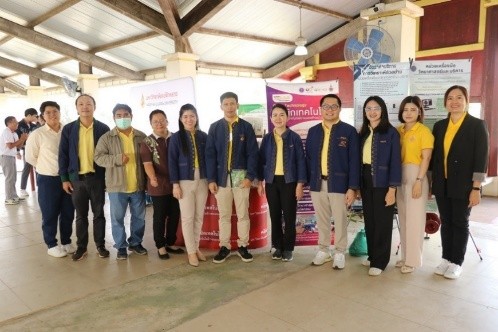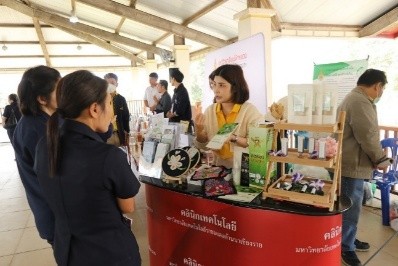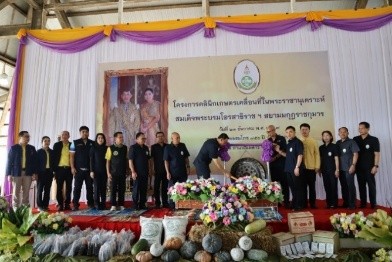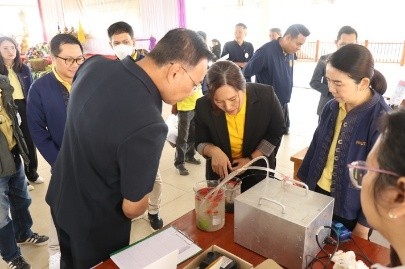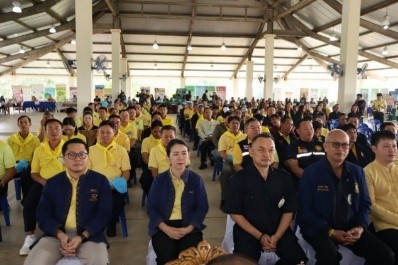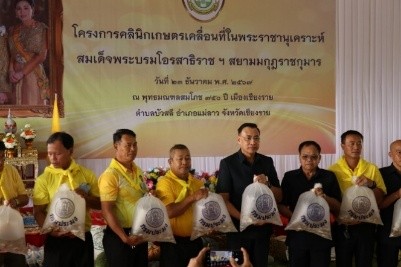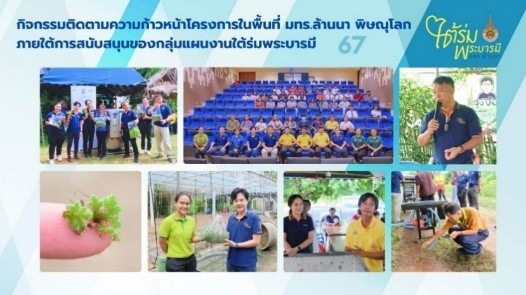RMUTL advances sustainable food security by empowering local farmers and producers with knowledge, skills, and modern agricultural technologies. Projects such as the Product Development and Community Strengthening Project in Chiang Mai and the Mobile Agricultural Clinic in Chiang Rai provide training in sustainable farming, value-added processing, and innovative practices.
The university also promotes public engagement through events like the 2025 Lampang Winter Festival and Local Products Exhibition, showcasing research and local innovations to encourage knowledge exchange and community collaboration. These initiatives strengthen local livelihoods, reduce agricultural waste, and promote environmentally responsible practices aligned with the Sufficiency Economy Philosophy and the Sustainable Development Goals.
RMUTL Community Technology Transfer Institute Conducts Field Visits to Support Local Innovation Projects
On July 17, 2024, Assistant Professor Worajak Muangjai, Director of the Community Technology Transfer Institute and Head of the Under the Royal Patronage Program, together with Assistant Professor Montri Ngaodej and Mr. Narit Kamphaengkaew, led staff on field visits to collect data and film materials for a research and academic services database addressing local challenges. The initiative also aimed to strengthen partnerships and promote multidimensional sustainable development.
- The team visited three ongoing projects, including “Innovation in Egg-Laying Chicken Feed Using Local Ingredients Based on the King’s Philosophy,” led by Ms. Usaneephon Soiphet from the Faculty of Science and Agricultural Technology, RMUTL Phitsanulok. The project develops low-cost, high-quality feed formulas for the Happy Egg Chicken Community Enterprise in Phitsanulok, using fresh red azolla as a sustainable protein source.
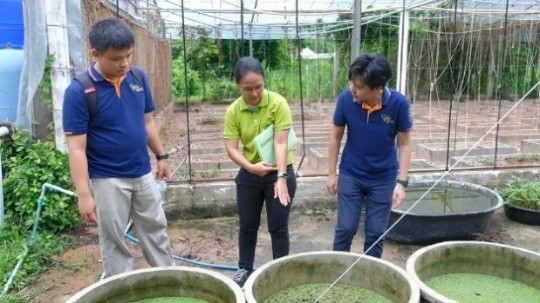
- Prototype Mobile IoT-Controlled Solar Water Pump for Farmers
Led by Mr. Sombat Mongkolchaichana, Lecturer, Faculty of Engineering, this project developed a compact, solar-powered mobile water pump for farmers in Ban Krang Subdistrict, Phitsanulok. The IoT-based system allows remote control via a mobile app, includes soil moisture and air temperature sensors, and uses battery storage for continuous operation. The portable design reduces fuel costs and supports efficient water management across planting areas.
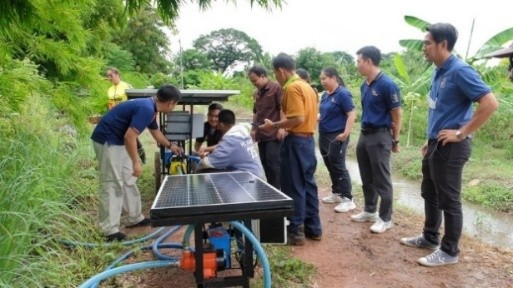
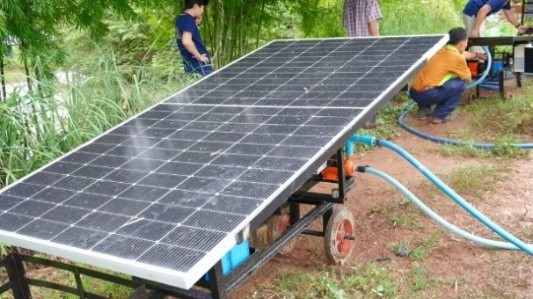
- Prototype Cool Air Vegetable Spinner for Organic Processing
Led by Ms. Duanram Paengkiao, Lecturer, Faculty of Engineering, this project developed a cool air vegetable spinner with a microcontroller that adjusts operation by weight and displays spinning time and weight. Tested for optimal speed and efficiency, the system effectively removes moisture from organic vegetables, supporting the Safe Vegetable Community Enterprise in Sukhothai in producing crispy vegetable sheets, vegetable jelly, and other value-added products.
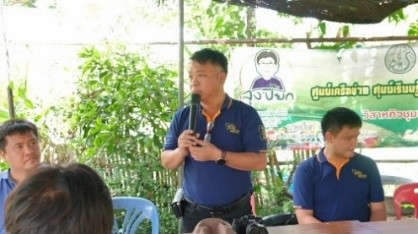
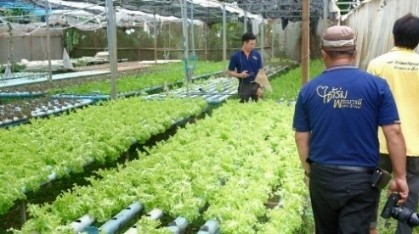
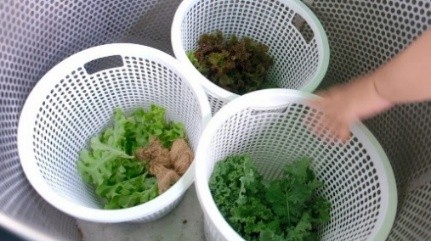
RMUTL Showcases Innovation at the 2025 Lampang Winter Festival and Local Products Exhibition
RMUTL participated in the 2025 Lampang Winter Festival and Local Products Exhibition, showcasing innovations, research outputs, and local products. The event promoted community engagement, highlighted regional strengths, and fostered knowledge exchange between academia, local producers, and the public, supporting local culture, agriculture, and sustainable development.







On December 13, 2024, the Institute of Agricultural Technology Research (IATR), RMUTL, joined the opening of the 2025 Lampang Winter Festival and Local Products Exhibition and organized an exhibition from December 13–22 at the National Sports University, Lampang Campus. The event highlighted achievements, shared academic knowledge, and showcased local technological innovations from public and private sectors. RMUTL’s participation promoted the university’s expertise, encouraged engagement among faculty and students, and presented research and services in plant genetic conservation, crop genetics, technology and plant disease clinics, and safe agro-industrial practices—supporting sustainable agricultural development in Lampang and nearby provinces.
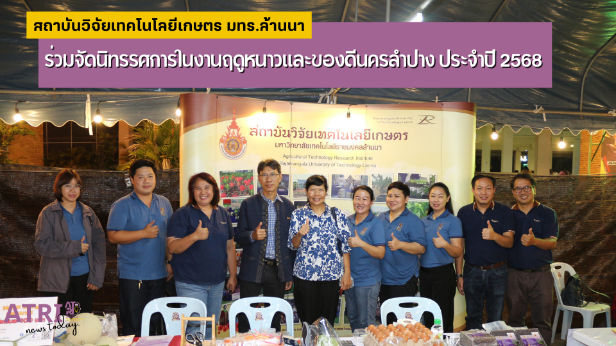
Enhancing Food Security for Tai Lue Farmers in Ban Wang Phai, Chiang Mai, Through Knowledge, Skills, and Technology Transfer
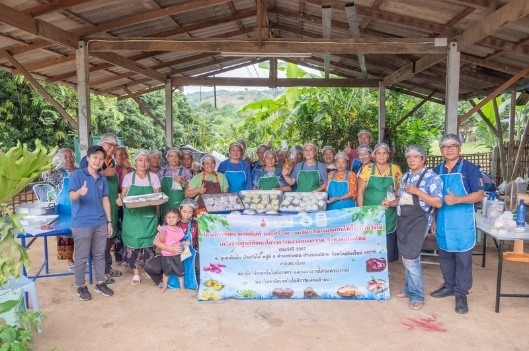
Under the Royal Patronage Program and the Agricultural Technology Research Institute, Lampang, organized a knowledge transfer activity with the Tai Lue farmers’ group in Ban Wang Phai, Tha Ton Subdistrict, Chiang Mai. The session focused on developing value-added agricultural products from mushrooms and local crops such as bananas, pumpkins, sweet potatoes, mangoes, and konjac to reduce waste and enhance commercialization. Farmers received hands-on training in processing techniques, including mushroom chili paste, crispy mushrooms, mushroom crackers, mushroom rice seasoning, and sweet potato- or pumpkin-filled steamed buns and curry puffs. The initiative strengthens local food security by providing knowledge, skills, and technology for safe, sustainable food production, supporting alternative incomes and community resilience under the Sufficiency Economy Philosophy.
RMUTL Chiang Rai’s Faculty of Science and Agricultural Technology provided agricultural consultation services at the Mobile Agricultural Clinic, Q1 FY2025.
On December 23, 2024, the Faculty of Science and Agricultural Technology, RMUTL Chiang Rai, led by Assistant Professor Chamaiporn Rattanacharoenchai, participated in the Mobile Agricultural Clinic Project under the Royal Patronage of His Royal Highness the Crown Prince. Presided over by Chiang Rai Governor Mr. Charin Thongsuk at Chiang Rai Buddhist Park, Bua Sali Subdistrict, the faculty organized a booth to address farmers’ concerns, provide academic services, conduct plant toxin testing, and offer consultations through the Scientific Instruments and Services Unit.
The event honoured His Majesty the King and supported royal initiatives by improving access to agricultural services for remote farmers. In collaboration with academic institutions, extension agencies, and LAPEs, it offered integrated solutions in crop production, livestock, and modern technologies to boost productivity, reduce costs, and enhance farmers’ livelihoods, aligning with government policies for sustainable agriculture.
